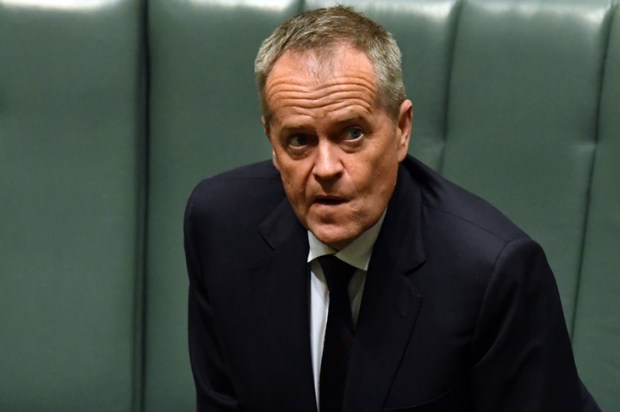It may seem rather petty, but the 2021 Olympic medal count is indicative of the obsessive preoccupations of the Chinese Communist regime. Throughout the recent Olympics, Chinese media published the medal count regularly. But when the United States edged China off the top rung, the tables disappeared, only to be replaced a few days later on state-controlled social media by a new table that included Hong Kong and Taiwan in China’s column, even though these two states are separately represented at the Games. Not content with stealing intellectual property from other nations, China now seeks to claim the medals won by others.
No aspect of life is free of the totalitarian command in China, as the financial and business world has learnt recently. A combination of events has highlighted the significant hazards of both investing in China and doing business there.
The Chair of the US Securities and Exchange Commission, Gary Gensler, has warned about the risks of investing in Chinese companies, observing that many American investors don’t know enough about some Chinese companies that are listed on US stock exchanges.
The Commission has already prevented public offerings by Chinese companies until they boost disclosures. Tellingly, many investors have failed to understand that they have been buying shares in shell companies instead of the actual Chinese businesses. ‘That means disclosing the political and regulatory risk that the government of China could, as they’ve done a number of times recently, significantly change the rules in the middle of the game,’ Gensler said. ‘If the auditors of Chinese operating companies don’t open up their books and records in the next three years, the companies… won’t be able to be listed here in the US.’
The related risk arises from China’s new five-year plan for regulating the economy. The new rules, which tighten the control of the communist regime over the domestic economy, range from national security to technology. Already some sectors have taken a significant hit, such as the crackdown on the private providers of education and school tuition. The sector is unlikely to ever recover. Other businesses have also been in the firing line, including giants such as Alibaba and Didi. The value of shares in a series of companies has fallen with an estimated $1 trillion wiped off Chinese investments since February. In the past week, a further $500 billion in market value has been wiped off the Hong Kong and China exchanges. The Nasdaq Golden Dragon China index, which tracks 98 firms listed in America that predominantly operate in China, has fallen by 50 per cent in the past six months.
Many Western investors are re-examining exposure to a regime that is ready to arbitrarily change the legal rules. China’s new anti-foreign sanctions laws have also sent a shiver through the world financial and business community as they expose individuals and companies operating in China to new sanctions as it expands its legal warfare. The consequences include a migration of companies elsewhere, especially from Hong Kong, and a reordering of supply chains to avoid China. Investors and businesses are quickly discovering to their chagrin that capitalism ‘with Chinese characteristics’ means totalitarian CCP control.
When added to China’s out-of-control property bubble, which leaves economic growth dependent on real estate, and significant state-owned enterprise and regional city debts, China is no longer a magic pudding.
Worse, it has taken to arbitrarily jailing business people and others, including Australian journalist Cheng Lei, on trumped up charges – or none – for supposed crimes against vague national security laws.
The revelation by the leader of the World Health Organisation probe, Dr Peter Embarek, that the first Covid-19 patient may have been infected by a bat while working at the Wuhan lab and that the WHO had delayed declaring an international emergency to appease China has further strengthened international resolve. Despite this, Xi Jinping continues his stealth war on the West, using the situation in Afghanistan to further threaten Taiwan, likening it to the fall of Saigon. But China has much to fear in Afghanistan, especially if the regime returns to a terrorist haven and supports groups like the East Turkistan Islamic Movement in Xinjiang province. No wonder the CCP is reaching out to the Taliban. Despite the lure of rare earth minerals, China knows the history of the Pakistani-backed Taliban. In past weeks, Pakistani radicals have bombed Chinese facilities and killed Chinese workers in the country.
Along with the continuing Wuhan cover-up, Xi’s ‘wolf-warrior’ diplomacy is turning sentiment against the CCP, causing the President to urge his diplomats to project a more ‘loveable’ China. But like every aspect of China, ‘Xi thought on diplomacy’ begins with the command to slavishly adhere to the CCP. The regime is clearly worried about the heightened – and united – opposition to its aggressive behaviour. The US is developing new long range ‘Dark Eagle’ hypersonic missiles that travel 2,700 kilometres and are deployable to submarines and destroyers. The US quickly reassured Taiwan – and its allies – that it will protect the island republic. Australia and other democracies must ensure this occurs.
Having woken India to its threats, and increasingly annoyed Japan which is deploying missiles to nearby Ishigaki island, the CCP faces a reinvigorated Quad. Even the Philippines, a country which has a Mutual Defence Treaty with the US, has increased its maritime activities in the South China Sea. Anti-Chinese public sentiment in South Korea has grown so quickly that a majority now regard the CCP more unfavourably than their former colonial ruler, Japan, with 58 per cent rating China as ‘close to evil’.
In what smacks of desperation, Xi’s regime has also increased its disinformation campaigns. Weirdly, it ‘discovered’ a Swiss scientist to justify China’s stance on the WHO investigation, only for it to be revealed the person does not exist. Equally bizarrely, Chinese state-controlled media circulated a forged US government document falsely claiming that former secretary of state, Mike Pompeo, had persuaded President Trump to avoid military confrontation, even if China attacked Taiwan.
Despite the sabre-rattling in Beijing, Xi risks major defeat if he decides to turn his stealth war into a real military conflict. Having been blamed for the botched Afghanistan withdrawal, the mood in much of Washington is not about further defeat and humiliation.
Got something to add? Join the discussion and comment below.
Get 10 issues for just $10
Subscribe to The Spectator Australia today for the next 10 magazine issues, plus full online access, for just $10.
You might disagree with half of it, but you’ll enjoy reading all of it. Try your first month for free, then just $2 a week for the remainder of your first year.














Comments
Don't miss out
Join the conversation with other Spectator Australia readers. Subscribe to leave a comment.
SUBSCRIBEAlready a subscriber? Log in